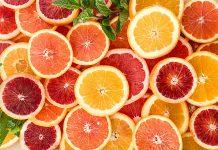 You should consult your pediatrician before giving your baby solid foods. If your baby has mastered eating pureed fruits and veggies and is showing interest in other foods (such as whatever is on your plate) , it’s probably a good time to move on to finger foods. Remember that even if you are feeding your baby solids, he still needs breast milk and/or formula until his first birthday.
You should consult your pediatrician before giving your baby solid foods. If your baby has mastered eating pureed fruits and veggies and is showing interest in other foods (such as whatever is on your plate) , it’s probably a good time to move on to finger foods. Remember that even if you are feeding your baby solids, he still needs breast milk and/or formula until his first birthday.
By now, your baby’s diet should include a variety of pureed foods including bananas, apples, peaches, carrots, avocado, squash, sweet potato, green beans, peas, etc. Between 6 and 8 months you can even introduce pureed meats (chicken, pork, and beef) and pureed legumes (edamame, black beans). If you haven’t noticed any allergic reactions to certain foods, consult with your physician about mixing those foods with other fruits and veggies.
Once your baby is 8-10 months, you can introduce finger foods. Before you introduce finger foods your baby must be able to hold his head up, sit well in a highchair, make chewing motions, close his mouth around the spoon, move food from front to back of mouth, and bring hands or other objects to his mouth. Your baby can do all these things?!? Great! Let’s move on!
What are the best first solid foods for infants?
First finger foods include:
- Small pieces of banana
- Wafer-type cookies or crackers
- Scrambled eggs
- Well-cooked pasta
- Well-cooked chicken, finely chopped
- Well-cooked and cut-up yellow squash, peas and potatoes
- Small amounts of pasteurized cheese, yogurt, cottage cheese (but NO cow’s milk or soy mile until age 1)
- Iron-fortified cereals (rice, barley, wheat, oats, and mixed cereals)
- Mashed fruits and vegetables, cooked until soft (peaches, pears, avocados, potatoes, and sweet potatoes)–Use a blender or food processor, or just mash softer foods with a fork.
- Lightly toasted bagels, cut up
- Teething crackers
- Low-sugar O-shaped cereals or puffs (sold at most local grocery stores, Target, and Babies-R-Us)
These new finger foods should keep you busy with taste tests and messy lunch dates with your little one for a good while (until about 10-12 months) before introducing other foods. Happy Feeding!
Foods to Avoid:
- Any food that requires chewing at this age
- Small, hard foods: Hard candies, cough drops, nuts, and popcorn are potential choking hazards. Seeds may be too small to choke on but can get stuck in a child’s airway and cause an infection.
- Soft, sticky foods: Soft foods like marshmallows and jelly or gummy candies
- Peanut butter: The sticky consistency of peanut butter and other nut butters can make it tough for a young child to swallow safely
- Choking Hazards: hot dogs, nuts and seeds; chunks of meat or cheese; whole grapes, popcorn, raw vegetables, fruit chunks (apple chunks)
Things to keep in mind:
- Remember to allow about a week (at least 3 days) between each new food introduction to watch for allergic reactions. Yes, that means your baby will be eating the same thing for two or three times a day. It sounds boring to us but it’s the best thing for your baby. {I am still figuring this out with Klarissa because she is sensitive to so many foods.}
- Don’t ever force foods — if baby repeatedly refuses to try something new, he’s simply not ready yet.
- Remember, baby still needs breast milk or formula until at least a year.
- Limit giving your baby foods that are made for adults. These foods often contain more salt and other preservatives. DO NOT add salt or seasoning to your baby’s foods.
- At any age, if your child experiences rashes, vomiting, bloating, gas, or diarrhea after a new food, stop giving it to him and talk to your doctor. He may have an allergy or food intolerance.
Disclaimer: This is information gathered from the internet, magazine articles, and books but not directly from a pediatrician. I do not give my daughter any finger foods yet because she has no teeth and we’ve had a few “choking” experiences with teething biscuits. Do not give your baby any finger foods if you are not comfortable doing so and/or have not consulted with your pediatrician first.







![It’s Time for an [ All Good ] Diaper Run! All Good Diapers for baby](https://riograndevalley.momcollective.com/wp-content/uploads/2020/05/Baby-by-all-good-box-218x150.jpg)





